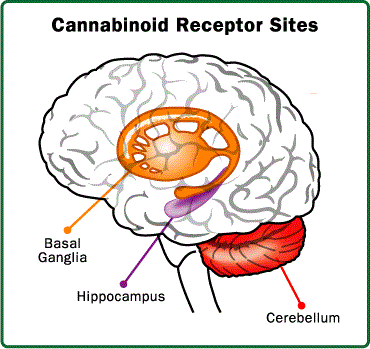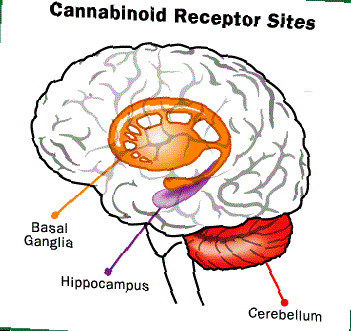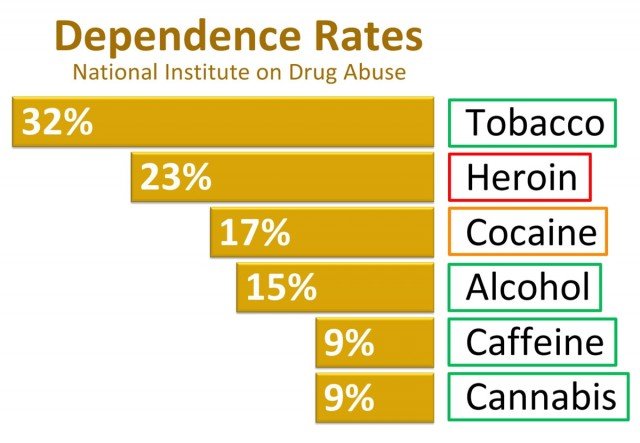Short and Long Term CBD effects of Smoking Weed on Health
For people who use marijuana for its medicinal purposes, the adverse effects of long-term use might be a source of concern. The medical benefits of CBD oil, THC products, and other kinds of marijuana have been well researched. We’ll look at the long-term impacts of marijuana smoking, as well as the short-term and long-term effects of marijuana use on the brain to determine if there are any negative effects or health concerns, and to measure these against the numerous benefits for frequent users.
Marijuana’s Short-Term Effects
Let’s take a look at the short-term consequences of marijuana use before moving on to the long-term effects and adverse effects. When you consume marijuana products that contain a large amount of THC, you get an immediate ‘high,’ which might include feelings of relaxation and reduced stress. Euphoria and changes in perception are potentially possible side effects. In addition, there is pain relief and a stronger ability to enjoy chatting and listening to music. Some people have a more introspective and creative mind. Some users report increased anxiety as a side effect, especially when using strains with high THC and little cannabidiol (CBD), a medicinal component of cannabis that helps reduce the risk of harmful short-term side effects. Depersonalization, a sense of being unreal, or simply watching life without participating is another unpleasant acute side effect reported by some users.
Short-term effects of different strains vary. The effects of sativa weed differ from those of indica weed. Sativa strains are energizing and go well with energetic pursuits like social gatherings or artistic hobbies. Indica strains are more soothing and are used to relieve tension and relax. A Sativa strain is more likely than an indica strain to cause symptoms of increased anxiety.

| Marijuana’s Short-Term Effects | |
| Medical and Recreational Effects | Side Effects (all are rare) |
|
|
Marijuana’s Long-term effects




Marijuana’s Effects on the Brain
Cannabinoid receptors in the brain are affected by cannabis products. CB1 receptors are found primarily in the brain, whereas CB2 receptors are found primarily in the immune system. Cannabis’ psychological effects are caused by cannabinoids’ stimulation of CB1 receptors. It causes changes in the levels of neurotransmitters such as dopamine, noradrenaline, endorphins, and serotonin. affecting mood, pain relief, stimulation, memory, and saliva and ocular fluid secretion Cannabinoid receptors in the brain’s basal ganglia influence movement control, causing relaxation or, conversely, lethargy and ataxia. Memory and learning are affected by actions in the hippocampus, which can result in a rush of ideas and creativity or, conversely, a loss of normal thought control and perception.
A 2003 study at the University of California on the long-term effects of marijuana discovered that, while chronic use may cause effects such as forgetfulness or anxiety, it does not appear to cause permanent brain damage. Even in heavy users, all negative effects subsided within months of discontinuation.
Heavy marijuana use can rarely result in acute psychosis, which usually resolves within six hours; however, it can become chronic if the susceptible user continues to use heavily. Worryingly, some studies appear to indicate that cannabis use in childhood may increase the risk of psychotic disorders such as schizophrenia in susceptible individuals.
There is also a link between cannabis use as a child and major depressive disorder in adulthood. It is unclear whether it increases the risk of developing depression, or whether people with mood disorders use cannabis to self-medicate, or both.
Cannabis use may worsen symptoms of mania in those with bipolar disorders.
Marijuana’s Influence on Memory and Intelligence
Marijuana impairs short-term memory. Because it interferes with memory formation, this naturally affects long-term memory and learning. A study conducted at Harvard University in 2001 on the long-term effects of smoking cannabis and other forms of marijuana use discovered no significant long-term effects on memory. While chronic users had mild chronic memory and learning problems, particularly in verbal memory, which persisted for up to two weeks after abstinence, users appeared normal and no different from non-users after one month. In other words, while heavy marijuana use can lead to chronic short-term memory and learning deficits, marijuana may not cause permanent harm. Rather than becoming unable to remember information when sober, the user forgets it the first time. Other cognitive measures, including reaction time and reasoning ability, were unaffected.
A study conducted at John Hopkins School of Medicine in 2002 discovered mild deficits even 28 days after marijuana use was discontinued. As a result, it is possible that mild memory impairments can be permanent. However, marijuana can stay in the bloodstream for up to two months, so even after 28 days, some heavy users will still have blood levels of cannabinoids that may impair memory and learning.
Effects of Marijuana Use on Physical Health



Is it True That Smoking Weed Causes Lung Cancer?
Although there have been few studies linking marijuana smoking to lung cancer, marijuana smoke contains at least 50 known carcinogens. Inhaling the smoke of any plant material directly may be carcinogenic and mutagenic. On the other hand, marijuana has been shown to have anti-cancer properties when consumed in non-smoking forms. Essentially, this is due to a lack of thorough research in the past. We don’t know whether smoking cannabis promotes lung cancer or reduces the risk of lung cancer because it’s prohibited. For people who are concerned about this, other routes of administration, such as foods like cannabutter, may be a preferable option.
See our easy cannabutter recipes here: https://leaf.expert/english/information-for-patients/cannabutter-oil-recipe
Other Physical Effects
Cannabinoids included in medicinal marijuana may aid in the treatment of cancer and Alzheimer’s disease. When administered as a drug, the long-term effect is an increase in the number of years with higher quality of life.
Furthermore, marijuana use can raise cardiac workload, stimulation, and catecholamine levels (nervous system molecules that increase stimulation and induce stress), which can lead to heart problems in people who already have other risk factors. Marijuana can cause a temporary increase in the risk of heart attack and stroke shortly after smoking, though this is uncommon. The elevated risk is similar to that seen after intercourse or other forms of exertion. Those with heart difficulties or a history of stroke should use medical marijuana with caution, either abstaining or closely monitoring their blood pressure and heart rate. They may also choose for indica strains that are more soothing to minimize the negative effects of over excitement.
Smoking marijuana during pregnancy could be associated with miscarriage, or problems with growth and learning in the child, although there is little evidence on this. As the fetus’s nervous system is still developing, it is important that outside cannabinoids don’t interfere with development. Deficits in learning and attention could result. Firm conclusions on this cannot be drawn from the available scientific evidence, but to be on the safe side, intaking medical or recreational cannabinoids are contraindicated in pregnancy.
Does Marijuana Use Cause Dependency?




Cannabis Use Disorder is listed as a disorder in the Diagnostic and Statistical Manual of Mental Disorders 5th Edition (DSM-5). While marijuana is unlikely to be physically addictive, it can be mentally addictive, just like any other habit. In other words, while abrupt discontinuation may irritate the body, withdrawal will not occur to the same degree.
Marijuana users can become dependent when they use heavy doses over a long time. Some symptoms of dependence include irritability, restlessness, anxiety, depression, and needing higher doses to get the desired effect. Those who are dependent may continue to use despite financial problems and other harmful symptoms. Dependent users may have comorbid disorders including anxiety, depression, schizophrenia, and personality disorders. Tolerance may develop causing a dampening of the brain’s reward system, making regular activities less stimulating when done sober.
Conclusion
In summary, marijuana use has a range of short-term positive and negative effects, including euphoria and conversely anxiety. While there are short-term and chronic problems including possible lung damage and dependence, long-term problems have generally not been shown to persist a month after cessation, or after all, marijuana has left the system for a matter of weeks.
Heavy users who start using in childhood appear to have the most long-term impacts on the brain. Marijuana usage in children from childhood or adolescence into adulthood has been linked to the onset of psychotic diseases such as schizophrenia. There’s also a link between anxiety, depression, and personality disorders, however it’s unclear if the link is causal or just coincidental or a feedback loop containing both.
Dependence is defined by the DSM-5 as usage that continues despite negative consequences such as forgetfulness, anxiety, and disordered finances. Dependence on cannabis appears mild in comparison to dependence on drugs like alcohol or opiates.
There is little evidence for permanent brain damage. There is theoretical evidence for permanent lung damage, not shown in studies, but inferred from the usual damage from inhaling the products of plant combustion. Therefore, users concerned about the bodily long-term effects should consume marijuana through edibles only for medical indications.
- 1 Marijuana’s Short-Term Effects
- 2 Marijuana’s Long-term effects
- 3 Marijuana’s Effects on the Brain
- 4 Marijuana’s Influence on Memory and Intelligence
- 5 Effects of Marijuana Use on Physical Health
- 6 Is it True That Smoking Weed Causes Lung Cancer?
- 7 Other Physical Effects
- 8 Does Marijuana Use Cause Dependency?
- 9 Conclusion



